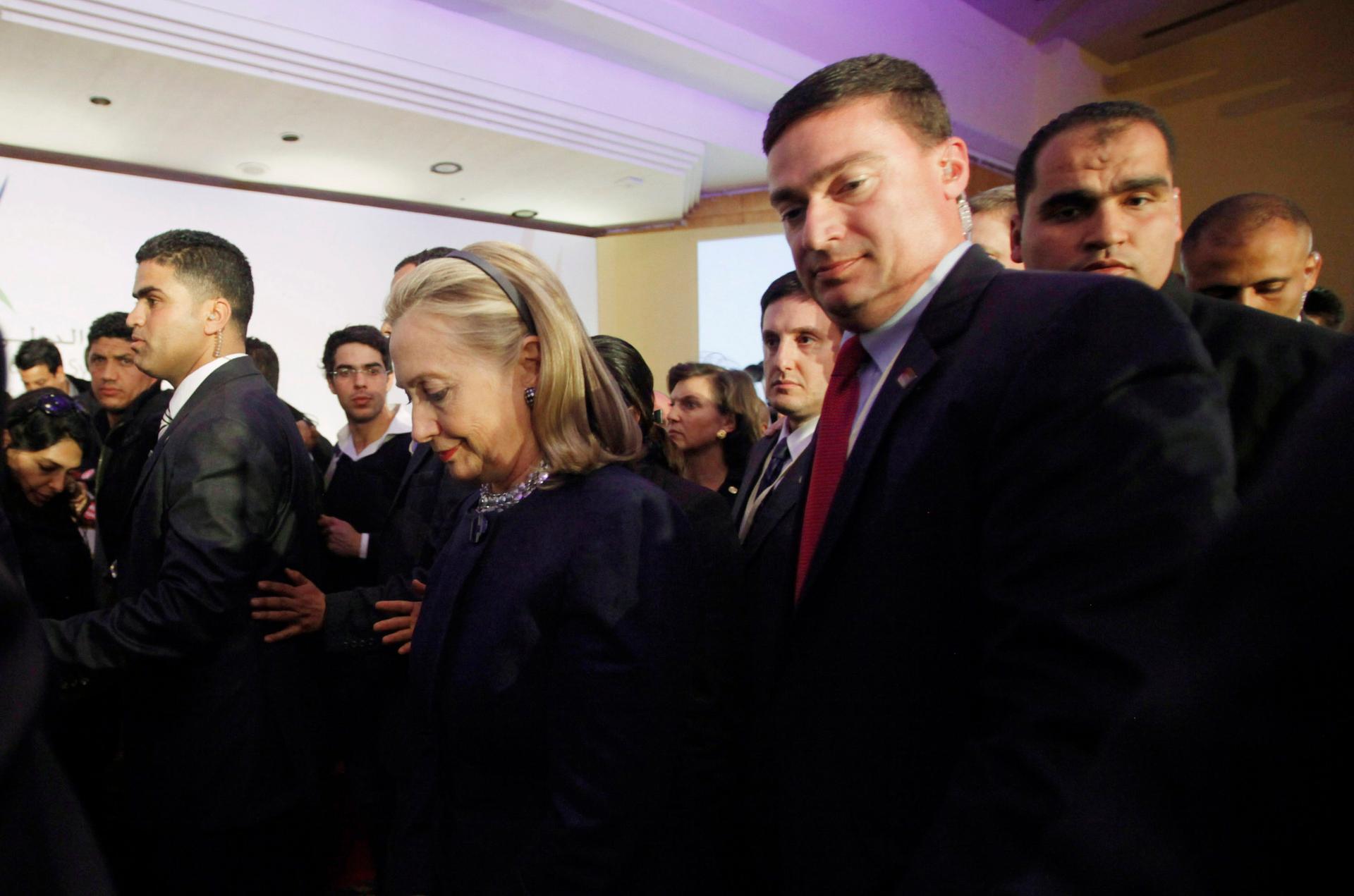In Tunisia, foreign officials struggle with how to help Syria as battle rages on
U.S. Secretary of State Hillary Clinton, surrounded by security members, walks to a news conference following the Friends of Syria Conference in Tunis, Feb. 24, 2012. (Photo by Jason Reed/Reuters.)
The protests and attacks continue in Syria as the violent crackdown wraps up its third week with no end in sight.
Meanwhile, in Tunisia, officials from more than 70 countries, the “Friends of Syria,” are gathered to try to formulate a solution to the ongoing crisis that has killed thousands.
The International Committee of the Red Cross and the Syrian Arab Red Crescent on Friday announced that a convoy had reached Homs and had already evacuated some Syrian nationals who wants to leave the besieged city. According to The Guardian, two Western journalists and the bodies of two others, presumably Marie Colvin and Remi Ochlik, were also evacuated.
“The decision by the Syrians to grant access followed determined appeals by the ICRC and concerted diplomacy by the French. Russia, one of Syria’s few remaining allies, may have played a role, after saying it agreed with a Red Cross proposal for a daily, two-hour ceasefire period to allow relief agencies to deliver aid to civilians,” the Guardian wrote.
Foreign officials in Tunisia have demanded that organizations be allowed to get medical supplies into the battered city.
Jonathan Marcus, a BBC reporter in Tunisia, said there was a definite sense of urgency at the meeting, but a growing sense of frustration over the fact that nothing that is discussed will make any urgent changes on the ground in Syria.
But what was discussed, Marcus said, citing British Foreign Secretary William Hague, is expected to tighten the “stranglehold” on the Syrian regime.
“He also said there had been steps taken to increase the status of the main Syrian opposition group, the Syrian National Committee,” Marcus said. “That now is seen by this meeting as a legitimate representative of the Syrian people, not the single representative. It’s not viewed yet as a kind of government-in-waiting, but it’s stature has been elevated.”
Marcus said higher levels talks with the Syrian opposition were expected in the coming days.
But what’s not expected is any sort of ultimatum for a timeline for the violence to end. There can be no ultimatum without an “or else,” Marcus said, and so far Russia and China have stymied any efforts to back up pleas to end the violence have military consequences.
“There’s been discussion about peacekeeping forces, an Arab peace force for example,” Marcus said. “Of course, that would have to go in after a cease fire, where there was an established peace to keep. No one is talking about fighting their way into Syrian cities.”
Marcus said what’s likely to happen in the interim, however, is more and more countries funneling arms to Syrian rebels, to help them defend themselves. While no one has admitted that’s their plan, few have outright rejected it either.
Our coverage reaches millions each week, but only a small fraction of listeners contribute to sustain our program. We still need 224 more people to donate $100 or $10/monthly to unlock our $67,000 match. Will you help us get there today?
